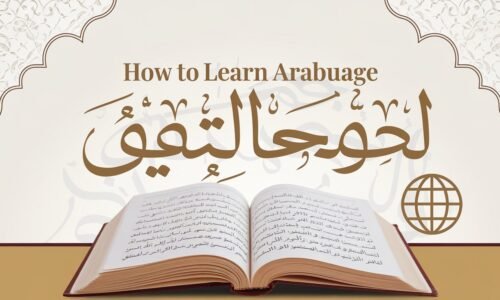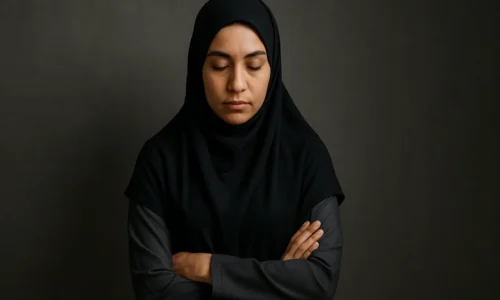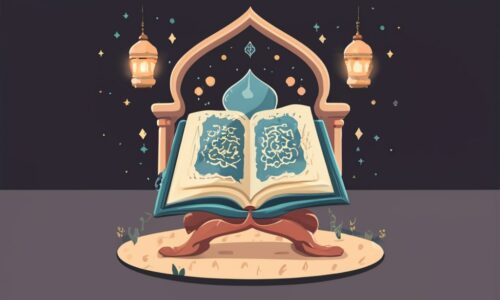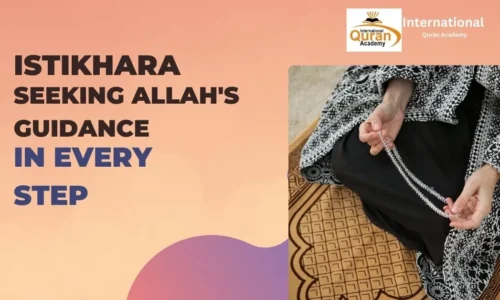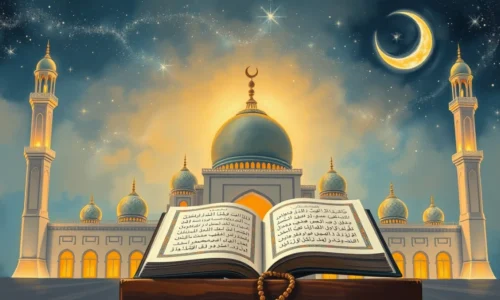Eid ul Adha is considered a very important day in the Islamic calendar. Some people know it as the Festival of Sacrifice. Muslims everywhere unite each year in celebration, praying, being kind and showing love for one another.
The day honors the faith of Prophet Ibrahim (A.S), who was willing to sacrifice his son for Allah. In return, Allah replaced his son with a ram. This powerful moment became the heart of Eid ul Adha.
This day is celebrated differently by Muslims everywhere, starting from Makkah and Malaysia to Karachi and California. Still, the values are identical: being faithful, sacrificing and caring about people.
In this article, you’ll learn how Muslims around the world celebrate Eid ul Adha — through prayer, Qurbani, sharing, and unity.
What Is Eid ul Adha?
It is one of only two officially recognized holidays for Muslims. It is called Festival of Sacrifice. Muslims all over the world look forward to celebrating it every year.
The festival marks the close of Hajj, when Muslims from around the world come to Makkah. It makes us think of Prophet Ibrahim (Abraham), who was willing to sacrifice his son for Allah. Instead, Allah took the son’s place with a ram. This demonstrated that Ibrahim was very devoted to his religion.
وَفَدَيْنَاهُ بِذِبْحٍ عَظِيمٍ
Qur’an Reference: “We ransomed him with a great sacrifice.” (Surah As-Saffat 37:107)
Muslims celebrate Eid ul Adha to honor that act of devotion. On this day, people offer animals like goats, sheep, or cows. The meat is shared with family, neighbors, and the poor.
مَا عَمِلَ آدَمِيٌّ مِنْ عَمَلٍ يَوْمَ النَّحْرِ أَحَبَّ إِلَى اللَّهِ مِنْ إِهْرَاقِ الدَّمِ
Hadith Reference: “The son of Adam does not do any action on the Day of Sacrifice which is more beloved to Allah than the shedding of blood.” (Tirmidhi 1493 – Hasan)
It is a day of prayer, sacrifice, and kindness. Families dress in clean clothes, go to the mosque, and greet each other with joy. It is not just a celebration—it is a reminder of faith, sacrifice, and care for others.
Why Do Muslims Celebrate It?
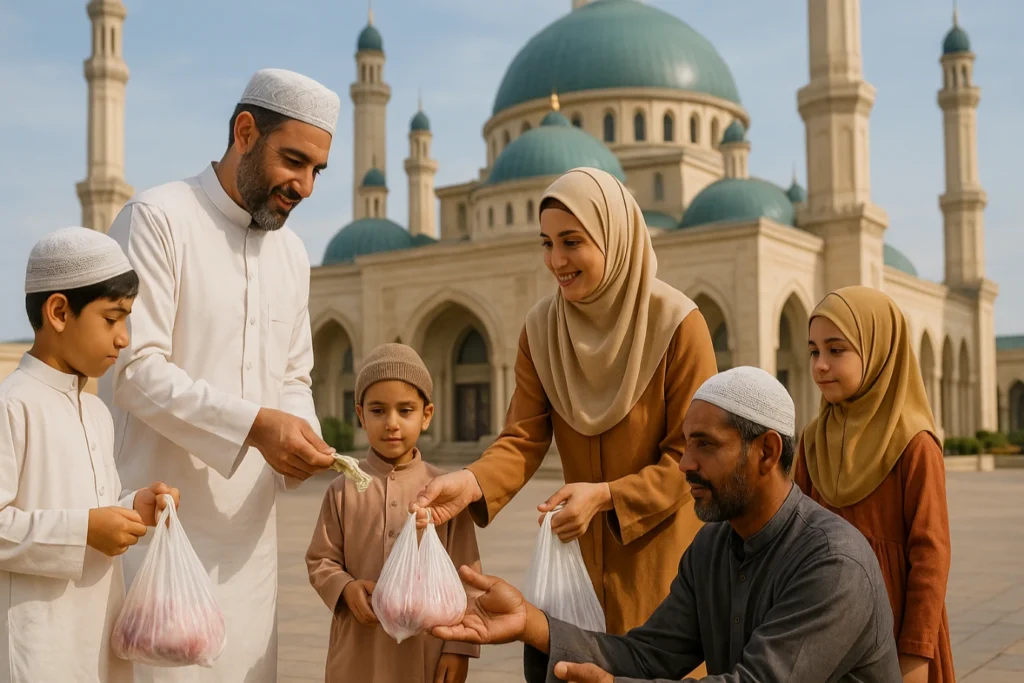
People celebrate Eid ul Adha as a way to remember Prophet Ibrahim’s (A.S) challenge. He decided to sacrifice his son for the cause of Allah. When Mary agreed, she showed she had great trust in God.
God loved when he obeyed so he replaced his son with a ram. In doing so, they showed their submission to Allah.
إِنَّ هَذَا لَهُوَ الْبَلَاءُ الْمُبِينُ وَفَدَيْنَاهُ بِذِبْحٍ عَظِيمٍ
Qur’an Reference: “Indeed, this was the clear trial. And We ransomed him with a great sacrifice.” (Surah As-Saffat 37:106-107)
Every year, Muslims honor this event by offering animals. This act is called Qurbani. It teaches us to obey Allah and give up what we love for His sake.
The Prophet Muhammad (ﷺ) continued this tradition and encouraged Muslims to perform sacrifice.
سُنَّةُ أَبِيكُمْ إِبْرَاهِيمَ
Hadith Reference: “It is the Sunnah of your father Ibrahim.” (Ibn Majah 3122)
Celebrating Eid ul Adha also reminds Muslims to be grateful, humble, and helpful to others. It’s not just about sacrifice. It’s about devotion, charity, and faith.
The Story Behind Eid ul Adha
The celebration of Eid ul Adha is based on what Prophet Ibrahim (A.S) did. He was loyal to Allah throughout his life. He pleaded with God for an upstanding child. God answered his plea and bestowed Ismail (A.S) upon him.
Years passed, and Ismail grew into a strong and good boy. Afterward, Allah gave Prophet Ibrahim a dream to test him. He was making a sacrifice of his son in the dream. I kept having the same dream many times. He understood that it was an order from God.
He related the dream he had to his son, Ishaq (A.S). Ismail (A.S.) was not delayed in his answering. He followed the order given by the commander.
يَا بُنَيَّ إِنِّي أَرَىٰ فِي ٱلْمَنَامِ أَنِّيٓ أَذْبَحُكَ فَٱنظُرْ مَاذَا تَرَىٰ ۚ قَالَ يَـٰٓأَبَتِ ٱفْعَلْ مَا تُؤْمَرُ ۖ سَتَجِدُنِىٓ إِن شَآءَ ٱللَّهُ مِنَ ٱلصَّـٰبِرِينَ
Qur’an Reference: “O my son, indeed I have seen in a dream that I [must] sacrifice you, so see what you think.” He said, “O my father, do as you are commanded. You will find me, if Allah wills, among the patient.” (Surah As-Saffat 37:102)
Both father and son went to fulfill the command. Just as Ibrahim (A.S) was about to sacrifice Ismail, Allah stopped him. Allah replaced Ismail with a ram.
وَفَدَيْنَاهُ بِذِبْحٍ عَظِيمٍ
Qur’an Reference: “And We ransomed him with a great sacrifice.” (Surah As-Saffat 37:107)
This test showed true submission to Allah. Both father and son passed with full faith and obedience.
The Prophet Muhammad (ﷺ) said that this sacrifice is not only a ritual. It is a way to remember the sincerity of Ibrahim (A.S) and Ismail (A.S).
سُنَّةُ أَبِيكُمْ إِبْرَاهِيمَ
Hadith Reference: “It is the Sunnah of your father Ibrahim.” (Ibn Majah 3122)
That is why Muslims offer Qurbani during Eid ul Adha. It reminds them to submit to Allah. It teaches them to obey, trust, and sacrifice for the sake of faith.
How the Day Begins
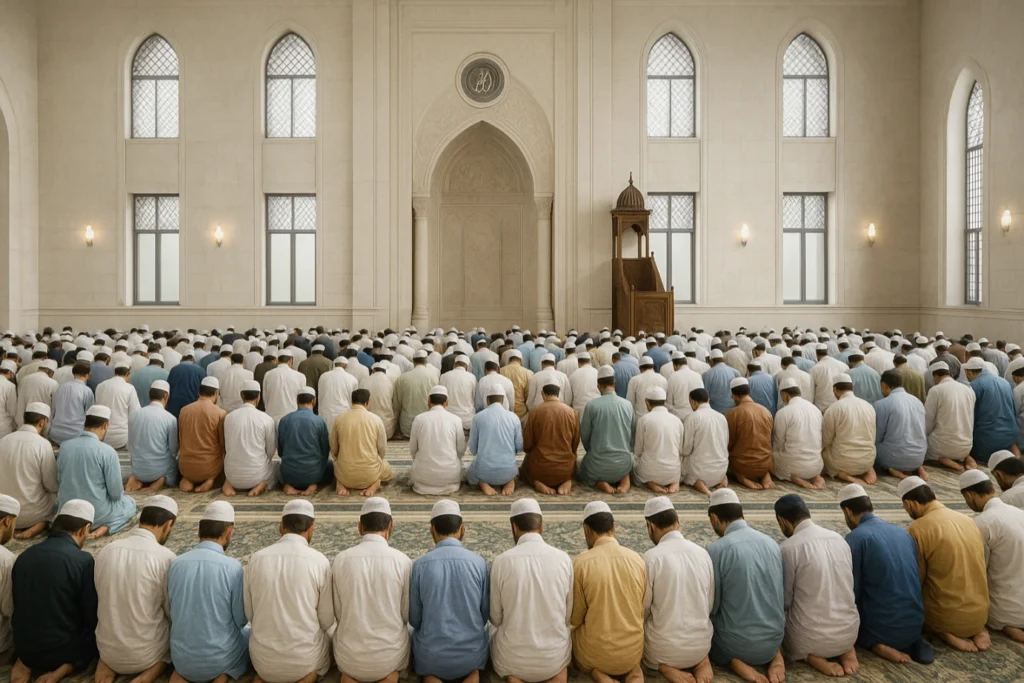
This holiday is all about a new beginning. Most Muslims begin their day early in the morning. They shower, put on new clothes and apply perfume. Traditionally, men wear white or common outfits for the ceremony. Their dress is simple and conservative.
The Prophet encouraged Muslims to celebrate joyfully on Eid. Thanksgiving Day is a celebration of all the good things we have received.
كَانَ رَسُولُ اللَّهِ ﷺ يَغْتَسِلُ يَوْمَ الْفِطْرِ وَيَوْمَ الْأَضْحَى
nnah Reference: The Prophet ﷺ used to take a bath on the day of Eid before going to prayer. (Ibn Majah 1315)
Before leaving home, Muslims eat something light, like dates or a simple meal. But on Eid ul Adha, many wait until after the Eid prayer before eating meat from the sacrifice.
The family then gathers and heads to the mosque or Eid prayer ground. They recite Takbeer loudly on the way:
اللّٰهُ أَكْبَرُ، اللّٰهُ أَكْبَرُ، لَا إِلٰهَ إِلَّا اللّٰهُ، وَاللّٰهُ أَكْبَرُ، اللّٰهُ أَكْبَرُ، وَلِلّٰهِ الْحَمْدُ
Allah is the Greatest, Allah is the Greatest, there is no god but Allah, Allah is the Greatest, Allah is the Greatest, and all praise is for Allah.
This chant fills the air with joy and faith. It reminds everyone that this day belongs to Allah alone.
When they get to the place, they gather with other Muslims for a special prayer. Open spaces are used for it whenever possible. It begins the celebration by gathering everyone together and recalling Allah.
The Eid Prayer and Its Importance
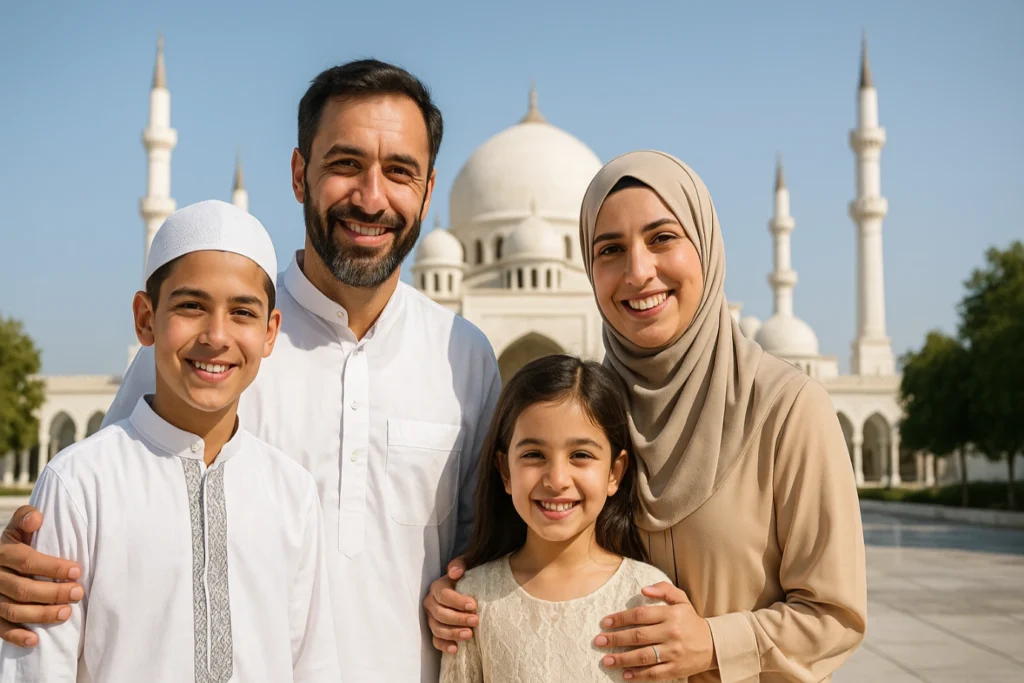
Eid prayers are the most important act of the morning. It brings people together as one. From all different backgrounds, Muslims meet at one place. They are united, people of every age and income, since Allah makes them equal.
Men are required to pray this while the women and children are highly encouraged to participate. It does not require us to pray every day like other prayers. There are no following calls for prayer and starting them either.
It is performed with two rak‘ahs. In the beginning rak‘ah, he adds seven more Takbeers and in the second one, the Imam says five extra Takbeers. Then, the Imam speaks to the people so they can understand the significance of Eid and the sacrifice made by Prophet Ibrahim (A.S).
خَرَجَ النَّبِيُّ ﷺ يَوْمَ الأَضْحَى، فَصَلَّى رَكْعَتَيْنِ، وَلَمْ يُصَلِّ قَبْلَهَا وَلاَ بَعْدَهَا
Hadith Reference: The Prophet ﷺ went out to the prayer place on the Day of Eid and offered a two rak‘ah prayer, and he did not pray before or after it. (Bukhari 956)
Listening to the khutbah is part of showing respect to the message of Eid. It reminds Muslims of sacrifice, obedience, and charity.
After the prayer and khutbah, people greet each other. They say:
تَقَبَّلَ اللَّهُ مِنَّا وَمِنْكُمْ
“May Allah accept from us and from you.”
This prayer starts the day with peace, love, and unity. It sets the tone for the rest of Eid.
What Does Qurbani Mean?
Qurbani refers to the offering of an animal as part of Eid ul Adha. This is done so that we can act like Prophet Ibrahim (A.S). Muslims who are able to do so are guided to sacrifice during the days of 10th to 13th Dhul Hijjah.
In most cases, sheep, goats, cows and even camels are sacrificed during these rites. The animals should not have illnesses and they must be the correct age.
One sheep or goat should be sacrificed by every adult Muslim. A sacrifice for cows or camels can include as many as seven people.
A sacrifice is more than an ordinary ritual. Caring for a pet is a sign of loyalty. It proves a Muslim’s strong desire to offer a treasured possession for Allah.
Sacrificing animals is an act of kindness in Islam. One-third of the meat goes to your family, one-third to your relatives and friends; and the last one-third is given to the poor and needy. It allows the neighborhood to unite and helps those facing troubles enjoy Eid as well.
The sacrificing of animals on Eid should only begin after the Eid prayer. If this occurs prior to midnight, it does not matter. For this reason, timing is important. Most Muslims choose to have the sacrifice done either at their own homes, by local butchers or with help from charities.
Qurbani is focused on sharing, not only about performing the act of slaughter. It helps Muslims understand that sharing, obeying and humility are important.
Sharing Meat with Others

Sharing is one of the greatest joys of Eid ul Adha. The meat from Qurbani is separated into three equal parts.
The first part normally goes to the family. The second amount goes to relatives, friends and neighbors. The third part goes to the poor and anyone who needs it.
It encourages Muslims to be kind to people around them. It encourages kindness and support on Eid. Even if one does not have the money for meat, they can still have a nice meal on Eid.
In several countries, Muslims may give their Qurbani meat to charities. They deliver the meat to people who are affected by war, floods, disasters or who live in poor areas. It makes people everywhere happy and joyful.
Gathering for barbecue is not only a tradition. It helps create a community feeling and share affection. It helps us understand that our happiness comes from giving to others.
It fights hunger, brings relatives and friends together and encourages us all to stay selfless. It reveals that all individuals, including the poor, should observe Eid just as the rich do.
Family and Community Time
Eid ul Adha means more than simply sacrificing an animal. Part of it is enjoying times with your loved ones. After finishing the prayer and Qurbani, individuals gather with their families. Family members eat, talk and laugh together.
Many people make visits to their relatives and neighbors. You should look forward to spending time with your loved ones again. Parents give their children Eidi in the form of presents or cash. Everyone dresses nicely and is cheerful when greeting others.
In several parts of the world, people arrange community feasts. They offer an opportunity for people to come together and enjoy each other’s company. In some cases, families help new guests who might be far from their relatives to avoid being isolated.
This moment can also be used to accept forgiveness and move away from the situation. Eid marks a new beginning. You can improve relationships, check up on the elderly and wish people peace.
Eid demonstrates to Muslims that they should express love, come together and share their joy with others. People from different walks of life come closer together on Eid through religion and unity.
Traditional Foods of Eid
Food plays an important role during Eid ul Adha. Once Qurbani has taken place, families make special dishes from the fresh meat they receive. Each country has its unique dishes, made with care and happiness for everyone.
Cooking biryani, kebabs, korma and spicy curries is common in South Asia. People often enjoy barbecuing as well. Many people invite their family to eat grilled meat in their backyards.
Many Arab countries have dishes called Mansaf, Mandi and Kebsa. Plates usually contain rice, lamb and a mix of rich spices.
Muslims living in Africa and the West add some celebration to their favorite dishes. Some people mix the customary spices with meat slaughtered for Qurbani. In Nigeria, people usually enjoy jollof rice along with grilled meat during Eid.
Traditionally, people enjoy sweet treats during the celebration. Sheer khurma, baklava, maamoul, cakes or pastries make excellent desserts to go with your tea or juice.
Exchanging plates of food with your neighbors is a common practice among families. This brings more warmth to the community and allows everyone to enjoy Eid together.
Enjoying timely meals, good smells and sharing joys make Eid a day people remember.
Eid ul Adha Around the World
People all over the world celebrate Eid ul Adha as a Muslim festival. Each community has different ways of celebrating an Easter holiday.
The annual holiday is valued in Saudi Arabia because it follows right after the Hajj. Qurbani takes place near the Masjid Al Haram and the sounds of Takbeer can be heard everywhere.
In Pakistan, they put up decorations, exchange gifts and like to make meals such as biryani and kebabs. Days before Eid, many animals are sold in colorful markets along the streets.
In this nation, many Muslims gather in mosques and schools to participate in Qurbani and distribute their meat to the needy.
In this country, Eid is known as Kurban Bayramı. Elders receive visits from their family, eat a meal together and offer meat to those in need. Giving new outfits to kids is often common.
Big parks or arenas are where Muslims in the UK, USA and Canada perform their Eid prayers. Usually, people arrange Qurbani services with well-known and trusted organizations. Even though their country does not have many Muslims, they still unite to celebrate.
Food, dressing and customs are likely to be different in every country. Even so, what Eid promotes never changes: faith, sacrifice and kindness.
On this day, people around the world who follow the Muslim faith come together as one Ummah.
Helping the Poor and Needy
While we experience joy at home during Eid ul Adha, we also spread that joy to people around us. Helping others is a major lesson found in this day.
According to the faith, Muslims should allocate some of their Qurbani meat for the people who lack food. As a result, even those who do not have enough to eat can still celebrate Eid with pride.
Some also show their care by giving money, clothes or gifts. A few people like to spend time with children in orphanages or donate goods to shelters. There are also those who help victims of both humanitarian crises and armed conflicts.
Sending charity on Eid brings people from the community closer. It helps instill in kids the importance of donating to others. It shows adults that the greatest joy comes from helping someone else.
Many organizations in cities organize events for Eid. They gather meat, clothes or money and give them to low-income families. Those who live in rural areas often carry food to neighbors who may need it.
The Prophet ﷺ explained that being poor is a trait for a true believer. Eid ul Adha demonstrates the lesson in actions, not only through stories and speeches.
As a result, Eid becomes a day when everyone in the community benefits from the holiday.
How Kids Enjoy Eid
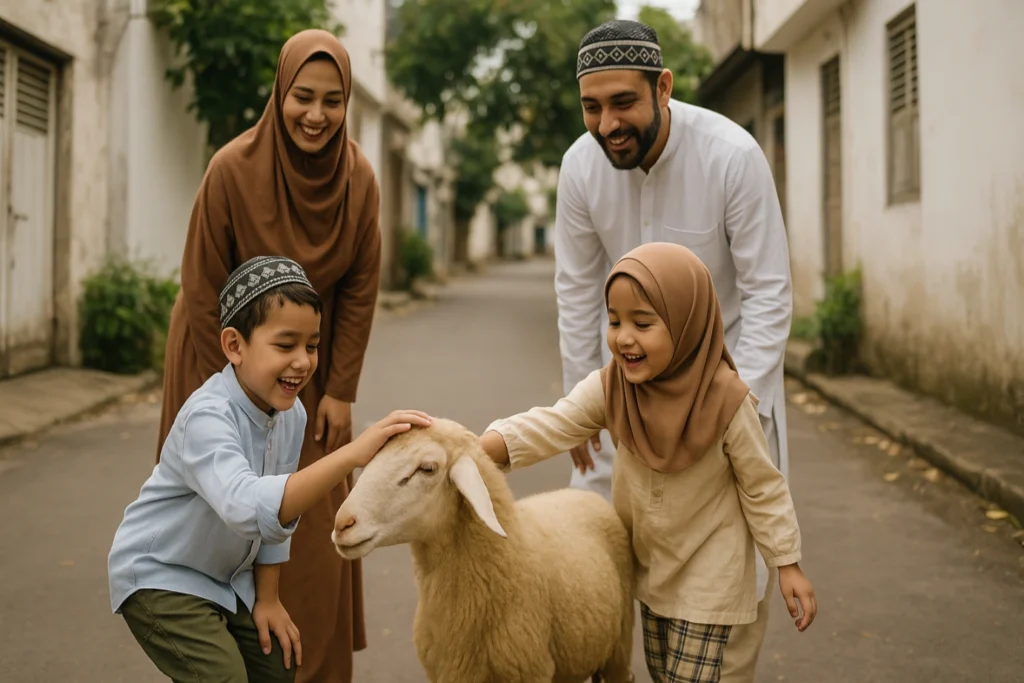
Children look forward to Eid ul Adha. They sense happiness as soon as they start their day. Wearing new outfits, they join their family members and attend the prayer for Eid.
A lot of kids often look forward to seeing goats, sheep and cows before the festival of Qurbani. There are those who feed and decorate the tree the day before. This adds an enjoyable and memorable touch to the ceremony.
After the prayer, kids greet their relatives and neighbors. To thank them, people give them Eidi which can be gifts, money or sweets. This moment is especially enjoyable for them during Eid.
Meals are lovely and kids often try to help out in whatever way they can. Some people serve everyone, while others can’t wait till dessert!
Playing games or watching television shows is something children do with their friends in many places. Sometimes, communities put on small events with rides, face painting or sessions reading stories to children.
Through Eid, children learn to be caring, to love their neighbors and to trust in God. Performing Qurbani allows them to understand the concept of giving in a loving manner. Charity teaches children to feel the happiness of helping others.
Kids experience Eid ul Adha with joy, gatherings with their families and by remembering the faith they share.
Simple Ways to Celebrate at Home
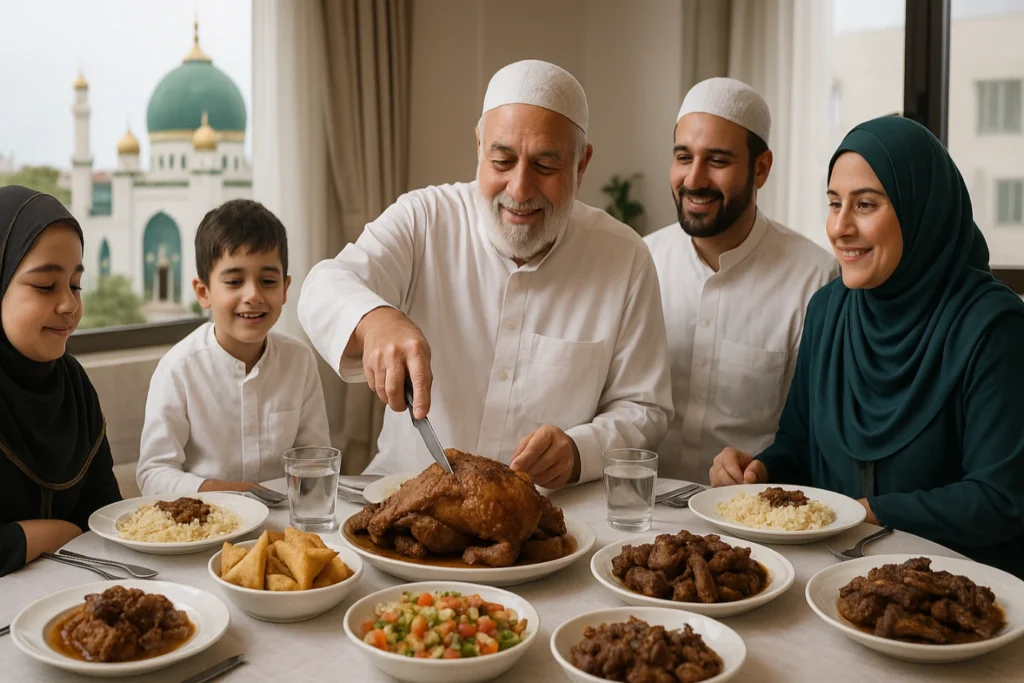
Getting together for Eid or meeting with relatives may not be possible for everyone. Still, you can enjoy and add meaning to Eid ul Adha at your home.
Ensure that the place where you pray is in order and peaceful. If you cannot go the mosque, offer Eid prayer alongside your family. Dress nicely and start the morning by saying Takbeer to remain in the mood.
Should your animals be slaughtered by an organization, discuss with your children what Qurbani is about. Give them visuals such as pictures or videos, to help them realize the purpose of it all.
If you can, fix a special meal for the upcoming holiday, however easy it may be. You could also try an unfamiliar recipe or cook something all your family members enjoy. Everyone should contribute, including the children. Now, cooking becomes a fun activity people do together.
Talk or video call with friends and relatives who are far from you. Send each other best wishes and send your prayers. No distance should interfere with your efforts to maintain a connection.
Bring some glory to your house by decorating with lights or banners. Send and exchange greetings on Eid by writing cards for each other. Offer Eidi to kids so they feel their importance is recognized.
We should not overlook the needy. Donate some of your food or money to those who need it. You can still accomplish a great deal with a small group.
If you celebrate Eid quietly at home with love and care, you’re sure to remember it fondly.
Eid Safety and Cleanliness Tips
While Eid ul Adha is a joyful time, it also requires us to perform certain responsibilities. Ensure the place where you perform Qurbani is neat, large and secure. Ensure that children and uneducated individuals stay away as you handle the task. Sharpen your tools and use them cleanly to cut the animal safely and successfully. Always use gloves to handle the meat and wash your hands after touching it.
Disinfect and clean both the surfaces and the tools after the Qurbani is finished. Be sure to store the meat in the fridge or freezer at the earliest opportunity. Keep meat and other food in containers and do not store it outside where pets might reach it. Whenever possible, handle and dispose of animal waste and remains with your city’s supported systems by following the guidelines.
When spending time with your family or the community, always remember to follow good hygiene habits. Frequently wash your hands, carry a hand sanitizer with you and limit your contact with an unwell person. Should you have health concerns, just spend your holidays at home with your loved ones. A hallmark of Islam is keeping things clean and making your home, kitchen and community clean helps make the celebration special for everyone.
The True Spirit of Eid ul Adha
Eid ul Adha is not only a festival. It confirms to us that we should keep our faith, obey our Lord and make sacrifices. It reminds us when Prophet Ibrahim was about to give his dear son to Allah from his own heart. That was true submission and Eid starts with this as its heart.
Faith, this day reminds us, is shown through our actions, as well as through what we say. The idea is to put our desires aside for the sake of Allah. Religion asks us to care for others, support the needy and appreciate our own lives.
We are encouraged to think and learn from Eid ul Adha. Are we able to overcome pride, ego or comfort once Allah informs us of what He requires? Could we make small sacrifices to cheer up another person?
It serves as a time when all Muslims unite as one. Despite our social, financial or age differences, we all ask for the same thing and look forward to the same goal.
Kindness and love should be shown on Eid, but it should also remain part of our daily lives throughout the year.
Tips for a Meaningful Eid
- Wake up early, take a bath (ghusl), and wear your best clean clothes.
- Begin your day with the Takbeer to remember Allah.
- Offer Eid prayer with sincerity, whether at the mosque or at home.
- Arrange Qurbani properly, ensuring it follows Islamic guidelines.
- Share your Qurbani meat with family, neighbors, and the poor.
- Cook a special meal and involve your family in the process.
- Call or visit your relatives, especially the elderly or those alone.
- Give Eidi and small gifts to bring joy to children.
- Donate to a charity — help someone in need experience Eid.
- Keep your home and surroundings clean after Qurbani.
- Teach your kids about the story and lessons of Eid ul Adha.
- Avoid waste, show gratitude, and practice patience throughout the day.
- Smile, forgive, and spread peace — make your Eid full of blessings.


